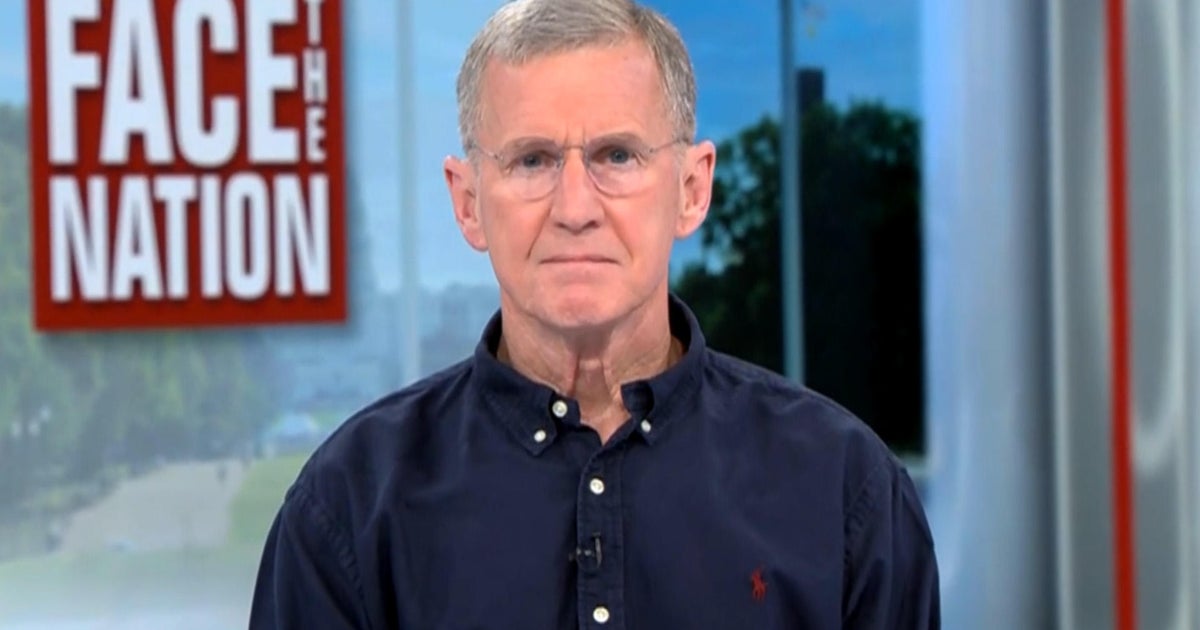CBS News
July is Disability Pride Month. Here’s what you should know.

This month marks 34 years since the Americans with Disabilities Act was signed into law, and Disability Pride Month was officially established nearly a decade ago.
As one blind author and illustrator recently pointed out, disability exists on a spectrum. And the fight for community, inclusion and acceptance is still going strong today.
In the U.S. in 2021, nearly 42.5 million people — or 13% of the population — had a disability, according to the American Community Survey, conducted by the U.S. Census Bureau. An estimated 1.3 billion people have a significant disability worldwide, according to the World Health Organization, which is 16% of the global population, or 1 in 6 people.
When is Disability Pride Month?
Disability Pride Month occurs annually in July, coinciding with the anniversary of the Americans with Disability Act (ADA) being signed into law. The ADA was signed into law on July 26, 1990, by President George H.W. Bush and protects the rights of people with disabilities against employment discrimination, while fostering inclusion in society.
George Bush Presidential Library and Museum
The goal was also to expand access to all levels of government, public establishments, transportation and communication — building on the protections afforded by Section 504 of the Rehabilitation Act of 1973. The 1973 law was the first legislation that addressed the rights of people with disabilities, but its protections only extended to employers who received federal funding.
Disability pride is also celebrated worldwide — sometimes at different months — including in the United Kingdom, South Africa and elsewhere.
What is Disability Pride Month?
Disability Pride Month was officially established in 2015 during the 25th anniversary of the ADA, with New York City hosting its first Disability Pride Month parade that year.
Celebrations honoring the landmark law began much earlier. The first disability pride events were held in Boston in 1990, the same year the civil rights law was signed. In 2004, Chicago held its first disability pride parade.
The idea of disability pride is rooted in the issue of visibility, much like the LGBTQ and Black, Indigenous and People of Color (BIPOC) pride.
Chicago’s Disability Pride Parade defines its mission in three ways: change “the way people think about and define ‘disability'”; break down and end the “internalized shame among people with disabilities”; and promote the belief in society that disability is a “natural and beautiful part of human diversity.”
Disability impacts all of us. Patrick Cokley, senior program officer at the Robert Wood Johnson Foundation, noted that 1 in 4 Americans will develop a disability in their lifetime. Cokley has low vision.
“If we pretend that it’s a small group we’ve never heard of, or a tiny population, then we do ourselves a disservice,” he told CBS News in an interview earlier this year. “We’re then also leaving out all of the other myriad of people that might have hidden disabilities, have aging disabilities or acquired disabilities.”
Starting points for how to interact with people with disabilities
As a spinal stroke survivor and a late-diagnosed adult with autism, Marisa Hamamoto’s lived experience highlights the intersectionality and variety of the disabled community.
She remembers her earliest experiences of feeling like she never fit in, but believes dance is a universal experience that belongs to everyone. Hamamoto founded Infinite Flow Dance in 2015, an award-winning dance company based in Los Angeles.
“Being the only Asian American growing up in my neighborhood, I got picked on at school for looking different,” she said. “Yet, you know, society — the dance world — was sending out this message that dance was only accessible to a select few.”
Her nonprofit employs disabled and nondisabled dancers with a mission to advance disability inclusion — one dance at a time.
“Stigma and discrimination has led to people not having access to education, to employment, to recreation and so many other things in life, and that is not right,” she told CBS News. “So we want to really shift that narrative.”
Part of that is education. Hamamoto’s advocacy has grown over the years since founding Infinite Flow, but she is quick to admit that she is always learning.
Here are some starting points for how to interact with people with disabilities, according to Hamamoto:
|
DO |
DON’T |
|
Start a conversation focusing on what’s similar, instead of what’s different. Direct your questions toward the person, not other people that they’re with. |
Ask “What’s wrong with you?” or “What happened?” |
|
Ask for permission before moving canes or wheelchairs. Their mobility devices should be seen as an extension of themselves and should be treated that way. |
Move their cane or wheelchair. |
|
Remember that people with disabilities are people first. Treat them accordingly. |
Be overly nice and overly cheerful. |
“It’s also important not to make assumptions,” she said. “No two disabled people have the same needs.”
Disability Pride Month is important to highlight because it gives those in the disabled community a collective power, Hamamoto told CBS News.
She said the road to disability acceptance is a personal journey, but was quick to note that those with disabilities are not alone and there is strength in numbers.
“For some of us, we were born with a disability. For others, disability was acquired in the middle of life,” she said. “Disability is a big part of how we live our lives, and disability can be a strength.”
CBS News
Stanley McChrystal says he is backing Harris because “character is very important”

Watch CBS News
Be the first to know
Get browser notifications for breaking news, live events, and exclusive reporting.
CBS News
Austria’s far-right Freedom Party heading for its first national election win

Austria’s far-right Freedom Party was headed for its first win in a national parliamentary election on Sunday, finishing ahead of the governing conservatives after tapping into voters’ anxieties about immigration, inflation, Ukraine and other concerns, a projection showed. But its chances of governing were unclear.
A projection for ORF public television, based on counting of more than half the votes, put support for the Freedom Party at 29.2% and Chancellor Karl Nehammer’s Austrian People’s Party at 26.3%. The center-left Social Democrats were in third place with 20.5%.
Herbert Kickl, a former interior minister and longtime campaign strategist who has led the Freedom Party since 2021, wants to become Austria’s new chancellor on the back of the first far-right national election win in post-World War II Austria.
But to become Austria’s new leader, he would need a coalition partner to command a majority in the lower house of parliament — and rivals have said they won’t work with Kickl in government.
The far-right has tapped into voter frustration over high inflation, the war in Ukraine and the COVID pandemic. It has also built on worries about migration.
In its election program, titled “Fortress Austria,” the Freedom Party calls for the “remigration of uninvited foreigners,” for achieving a more “homogeneous” nation by tightly controlling borders and suspending the right to asylum via an emergency law.
CHRISTIAN BRUNA / Getty Images
The Freedom Party also calls for an end to sanctions against Russia, is highly critical of Western military aid to Ukraine and wants to bow out of the European Sky Shield Initiative, a missile defense project launched by Germany. Kickl has criticized “elites” in Brussels and called for some powers to be brought back from the European Union to Austria.
“We don’t need to change our position, because we have always said that we’re ready to lead a government, we’re ready to push forward this change in Austria side by side with the people,” Kickl said in an appearance alongside other party leaders on ORF. “The other parties should ask themselves where they stand on democracy,” he added, arguing that they should “sleep on the result.”
Nehammer said it was “bitter” that his party missed out on first place, but noted that he had brought it back from lower poll ratings. He has often said that he won’t form a coalition with Kickl and said that “what I said before the election, I also say after the election.”
More than 6.3 million people aged 16 and over were eligible to vote for the new parliament in Austria, an EU member that has a policy of military neutrality.
Kickl has achieved a turnaround since Austria’s last parliamentary election in 2019. In June, the Freedom Party narrowly won a nationwide vote for the first time in the European Parliament election, which also brought gains for other European far-right parties. The party is a long-established political force but Sunday’s projected result, if confirmed, would be its best yet in a national parliamentary election — beating the 26.9% it scored in 1999.
In 2019, its support slumped to 16.2% after a scandal brought down a government in which it was the junior coalition partner. Then-vice chancellor and Freedom Party leader Heinz-Christian Strache resigned following the publication of a secretly recorded video in which he appeared to offer favors to a purported Russian investor.
The leader of the Social Democrats, a party that led many of Austria’s post-World War II governments, positioned himself as the polar opposite of Kickl. Andreas Babler ruled out governing with the far right and has labeled Kickl “a threat to democracy.”
While the Freedom Party has recovered, the popularity of Nehammer’s People’s Party, which currently leads a coalition government with the environmentalist Greens as junior partners, declined sharply compared with 2019. The Greens’ support also was projected to drop to just under 9%, and the outgoing coalition appeared to be well short of a majority.
During the election campaign, Nehammer portrayed his party, which has taken a tough line on immigration in recent years, as “the strong center” that would guarantee stability amid multiple crises.
But those crises, ranging from the COVID-19 pandemic to Russia’s invasion of Ukraine and resulting rising energy prices and inflation, also cost it support. The government also angered many Austrians in 2022 with a short-lived coronavirus vaccine mandate, the first in Europe.
But the recent flooding caused by Storm Boris that hit Austria and other countries in Central Europe brought the environment back into the election debate and may have helped Nehammer slightly narrow the gap.
The People’s Party is the far right’s only way into government.
Nehammer has repeatedly excluded joining a government led by Kickl, describing him as a “security risk” for the country, but hasn’t ruled out a coalition with the Freedom Party in and of itself — which would imply Kickl renouncing a position in government.
The likelihood of Kickl agreeing to such a deal if he wins the election is very low, leading political scientist Peter Filzmaier said before the election.
The most probable alternative would be an alliance between the People’s Party and the Social Democrats — with or without the liberal Neos, who took about 9% of the vote.
CBS News
60 Minutes reports on mezcal in Mexico

Watch CBS News
Be the first to know
Get browser notifications for breaking news, live events, and exclusive reporting.









